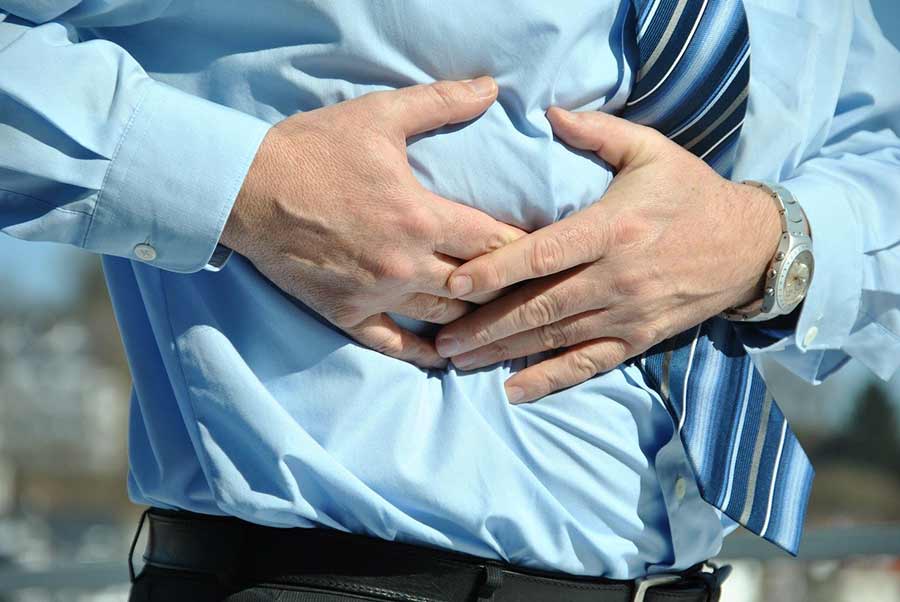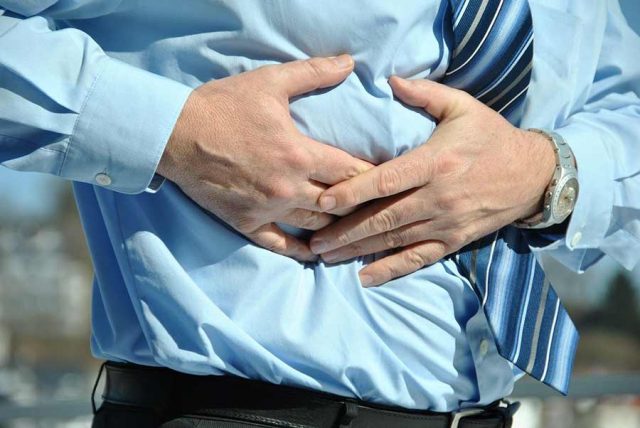Reviewed by Phillip Waite, Ph.D.

Irritable Bowel Syndrome (IBS) affects up to 20% of the general US population but most people feel too embarrassed to talk about it. If you have IBS, you know how much of an impact it has on your physical and mental health. This is why it is important to understand what foods can trigger IBS so that you can eliminate them from your diet. Here are 12 foods to avoid if you have IBS.
1. Wheat and other high-gluten grains
Many people with IBS are gluten intolerant. Wheat, barley and rye are some of the most common gluten-containing grains. This means that itandrsquo;s best to avoid foods made from these grains which would include white bread, pizza, pasta and crackers.
2. Dried figs and other fruits high in fructose
Fructose malabsorption is the inability to digest fructose and occurs frequently in IBS patients. Studies show that poorly absorbed fructose can exacerbate IBS symptoms such as bloating, gas and diarrhea. Dried figs, dates, prunes, apples and pears are high in fructose and can trigger IBS symptoms. You should also avoid fruit juices, sodas and all drinks containing high fructose corn syrup.
3. Carrots and other veggies high in insoluble fiber
Insoluble fiber helps food pass more quickly through the digestive system. Foods that are high in insoluble fiber can cause or worsen diarrhea in some people with IBS. Root vegetables such as carrots, potatoes and parsnips are high in insoluble fiber and should be avoided, especially if youandrsquo;ve had a recent IBS attack.
4. Cabbage and other cruciferous vegetables
Cruciferous vegetables often cause gas, bloating and abdominal pain. Cabbage, cauliflower, broccoli and Brussels sprouts are cruciferous vegetables that you should eliminate from your diet, especially if youandrsquo;ve suffered a recent IBS attack.
5. Chickpeas and other beans
Beans contain indigestible saccharides which can trigger IBS symptoms such as gas and cramps. Chickpeas, baked beans and soybeans contain high amounts of these saccharides which is why is why IBS patients are advised to completely avoid them.
6. Spicy foods
Studies show that the consumption of spicy foods triggers abdominal pain, gastroesophageal reflux and other GI symptoms in many IBS patients. Foods that contain red chili are more likely to trigger an IBS attack as red chili has a high capsaicin content. Capsaicin accelerates the speed at which food passes through the digestive system which results in diarrhea.
7. Chips and other processed snacks
Chips and other processed snacks contain a wide range of additives and preservatives that can trigger IBS episodes. Most of these snacks are also low in fiber and can induce or exacerbate digestive symptoms.
8. Fries and other high-fat foods
Fries, onion rings, pork rinds and doughnuts are just a few of the many deep fried foods we consume without a second thought. The high content of unhealthy fats in these foods can trigger IBS episodes and so you should eliminate them from your diet. Instead, you can opt for rice chips, plain tortilla chips or low-fat gluten-free pretzels so that you can enjoy your mid-day snack without worrying about IBS flare-ups.
9. Pastries and other bakery products
Pastries, cookies, biscuits and muffins are common trigger foods for IBS patients as they are made from flour and contain high amounts of saturated fats and trans fats. The good news is that you can make your own low-fat chocolate chip cookies or biscuits with gluten-free flour.
10. Milk and dairy products
Many people with IBS are lactose intolerant and suffer from IBS flare-ups after consuming milk and other dairy products. Dairy products also contain fats which increase the risk of diarrhea in IBS patients. You can switch to dairy alternatives such as rice milk and soy cheese to prevent an IBS flare-up.
11. Peaches and other canned fruit
Fruit is generally canned using syrup or fruit juice which contain high quantities of fructose. This is why people with IBS often experience digestive distress after consuming canned fruit. It is better to swap canned fruit for fresh fruit, especially low-fructose fruits such as bananas, blueberries and strawberries.
12. Onions and high-FODMAP foods
FODMAPs (fermentable oligosaccharides, disaccharides, monosaccharides and polyols) are types of carbohydrates that are poorly absorbed in the small intestine. Onions,garlic and asparagus are some of the many high-FODMAP foods that can trigger symptoms in people with IBS. Studies show that a low-FODMAP diet can help to improve functional gastrointestinal symptoms and improve the quality of life for those with IBS.
In addition to these dietary changes, you should also limit your intake of caffeinated beverages. Coffee and sodas are high in caffeine and often trigger IBS symptoms. Similarly, you should be wary of sugar-free products as they usually contain artificial sweeteners such as sorbitol and xylitol which can trigger IBS symptoms. It is important to understand IBS triggers and treatment methods so that you can live a healthier and happier life.
Did you find this article helpful? Join us at HealingWell for support and information about Irritiable Bowel Syndrome. Connect and share with others like you.
Anita Fernandes has been writing extensively on health and wellness for over a decade. She has expertise in nutrition, fitness, public health, and weight loss and has contributed content to a variety of leading digital health publishers. Anita has a unique perspective on healthy living and lifestyle, as she has battled and overcome eating disorders and obesity. She shares her experiences in an effort to help others overcome the physical and mental health problems that can sometimes seem insurmountable.




